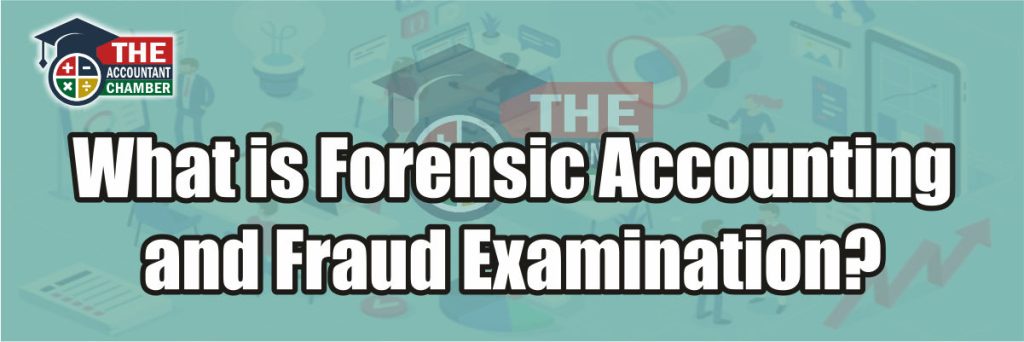Forensic accounting is the application of accounting, auditing, and investigative skills to assist in legal matters. It involves the examination of financial information to investigate and prevent fraud, and to provide evidence in legal proceedings such as civil lawsuits, criminal trials, and regulatory enforcement actions. Forensic accountants may also be involved in disputes and litigation, such as determining damages in a breach of contract case, or providing expert witness testimony in court.
Fraud examination is a sub-discipline of forensic accounting that focuses specifically on the detection, investigation, and prevention of fraud. Fraud examiners use their knowledge of accounting and financial systems, as well as investigative skills, to detect and investigate fraudulent activities such as embezzlement, money laundering, and financial statement fraud. They also provide recommendations for preventing future fraud and may assist in the recovery of stolen assets.
In summary Forensic accounting and fraud examination are both specialized fields that use accounting, auditing, and investigative skills to uncover financial fraud and assist in legal matters. While forensic accounting is a broader field that covers a range of legal and financial issues, fraud examination specifically focuses on the detection, investigation, and prevention of fraud.
Forensic accounting procedures typically involve several steps, Including:
- Initial assessment: This involves reviewing the facts of the case, identifying potential issues and determining the scope of the investigation.
- Data collection: This step involves collecting and analyzing financial and other relevant data, such as bank statements, accounting records, and email communications.
- Analysis: The data collected is analyzed to identify any unusual or suspicious transactions or patterns that may indicate fraud or other financial misconduct.
- Report preparation: A report is prepared that summarizes the findings of the investigation and includes any relevant documentation and evidence.
- Testimony: If the case goes to court, forensic accountants may be called upon to provide expert testimony regarding their findings.
- Follow-up: After the case is resolved, forensic accountants may provide recommendations for preventing similar issues in the future, and work with management to implement any necessary changes.
It’s important to note that these steps may vary slightly depending on the specific circumstances of the case and the laws of the jurisdiction involved.
Fraud examination procedures typically involve several steps, Including:
- Initial assessment: This involves reviewing the facts of the case, identifying potential issues and determining the scope of the investigation.
- Data collection: This step involves collecting and analyzing financial and other relevant data, such as bank statements, accounting records, and email communications.
- Analysis: The data collected is analyzed to identify any unusual or suspicious transactions or patterns that may indicate fraud or other financial misconduct. Fraud examiners use a variety of techniques to detect fraud, such as ratio analysis, data mining, and social network analysis
- Interviews: Fraud examiners may interview employees, management, and other relevant parties to gather additional information and clarify any suspicions that arose during the data analysis phase.
- Report preparation: A report is prepared that summarizes the findings of the investigation and includes any relevant documentation and evidence.
- Testimony: If the case goes to court, fraud examiners may be called upon to provide expert testimony regarding their findings.
- Follow-up: After the case is resolved, fraud examiners may provide recommendations for preventing similar issues in the future, and work with management to implement any necessary changes.
It’s important to note that these steps may vary slightly depending on the specific circumstances of the case and the laws of the jurisdiction involved.



